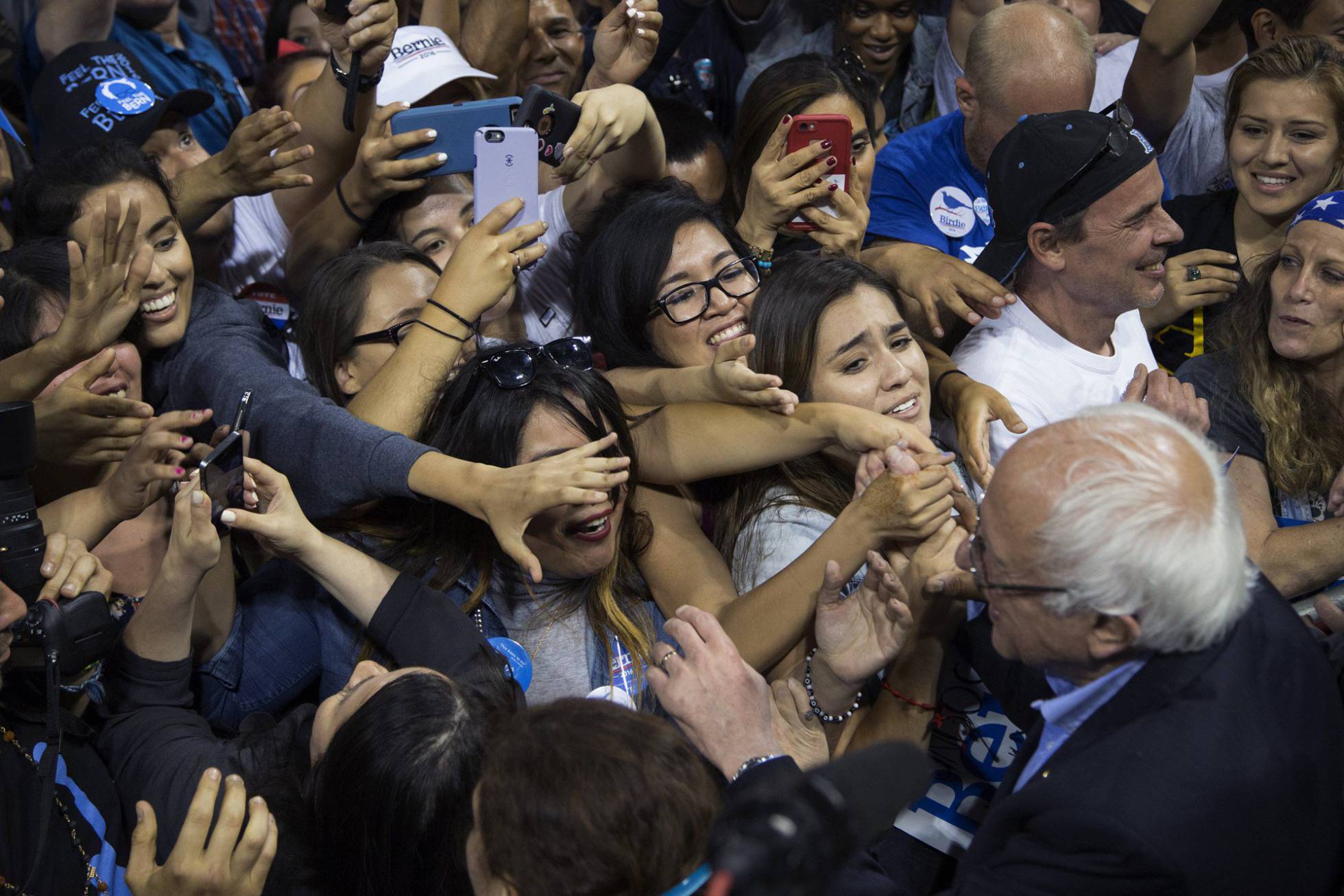
The Sanders campaign has accused the national chair of the Democratic National Committee of favoritism after incidents in Nevada.
A rift opened between followers of Bernie Sanders and the rest of the Democratic Party over incidents at a party meeting in Nevada this Wednesday, with accusations of foul play from both sides. The development has added to the impatience of some in the party over the senator’s refusal to end his campaign despite the fact that he will find it almost impossible to defeat Hillary Clinton. This disunity could threaten the Democrats’ chances in November’s presidential election against Donald Trump.
On Saturday, Sanders supporters in Nevada were involved in altercations at a convention where the delegates of individual counties were to be distributed. The senator’s followers argue that there were procedural irregularities, which they outline in their criticisms of an inefficient political system. Some present threw chairs and threatened the committee’s supervisor. In March, Sanders supporters interrupted a Trump rally, which was subsequently suspended.
The senator has condemned the violence in Nevada, but believes that the grievances of his followers were justified. “It is imperative that all state parties treat our supporters with fairness,” a statement on Tuesday read. “Unfortunately, that was not the case at the Nevada convention. At that convention the Democratic leadership used its power to prevent a fair and transparent process from taking place.”
On Wednesday, Sanders’ campaign manager, Jeff Weaver, went further and, in comments aimed directly at the party’s national leadership, accused the Democratic National Committee president Debbie Wasserman Schultz of “working against” the senator and of dividing the party. “There’s no doubt about it – [it’s] for personal reasons,” he stated.
The day before, Schultz, Senate Democratic leader Harry Reid and other high-ranking Democrats had asked for severe punishments to be handed out over the incident and had urged that such scenes not be repeated in July’s Democratic National Convention where the party’s candidate for November’s election will ultimately be chosen.
The main objective is to avoid a repeat of altercations like those seen at the tumultuous convention of 1968 when pacifist groups claimed that the designation of the party’s candidate had been plagued by irregularities. Clinton’s followers trust that Sanders will have withdrawn from the race before the convention in Philadelphia, with the process of primaries ending in mid-June.
This Wednesday, the White House entered into the controversy. “The president on a number of occasions has spoken out against violence and has certainly said a political dispute like this can never be used to justify violence or a threat of violence,” Press Secretary Josh Earnest stated in his daily press conference.
Democratic division will undoubtedly benefit Donald Trump, who for two weeks has been the presumptive Republican nominee, following the withdrawal of his rivals from the race. The New York-born millionaire has attacked Clinton and is attempting to court Sanders supporters, conscious of the fact that the two share a rhetoric hostile to the political classes and to free trade.
Following the incident, Trump tweeted that Sanders is being treated “very badly” because the system is “rigged” and went on to boast, “many of his disenfranchised fans are for me.”
Clinton fears that some supporters of Sanders, who is politically to her left, will either defect to Trump in November or decide not to vote in protest at the political establishment. A mere 30 percent of Americans believe that the system by which presidential candidates are chosen is fair – in 2008 this figure was at 67 percent, according to the publication Vox.

Leave a Reply
You must be logged in to post a comment.